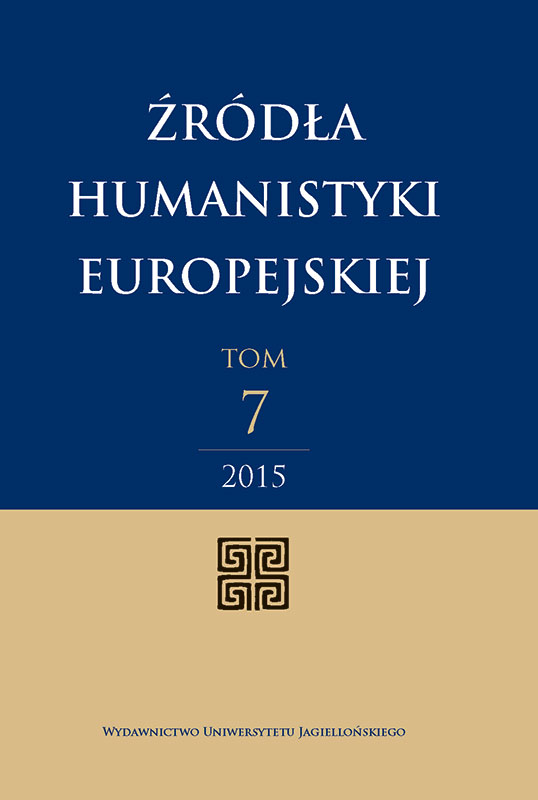„Poszukiwania w zapomnianych regionach słownika”. Wielojęzyczność leksyki Brunona Schulza jako problem w przekładzie
“Searching the forgotten regions of the dictionary”: Bruno Schulz’s lexical multilinguality as a translation problem
Author(s): Zofia ZiemannSubject(s): Syntax, Lexis, Polish Literature, Translation Studies
Published by: Wydawnictwo Uniwersytetu Jagiellońskiego
Keywords: Bruno Schulz; lexis; translation; loan words; foreignness;
Summary/Abstract: Alongside complex syntax, heterogeneous lexis rich in neologisms and loan words, usually of Latin origin, is the most salient feature of Bruno Schulz’s style. Moreover, it constitutes a meaningful creative strategy of writing about common things in an unusual manner, and thus endowing them with special significance. The paper examines the ways in which Schulz’s lexical multilinguality is treated by his translators. Schulz’s Latinate words usually lose their original foreignizing and “outlandish” character in translation into foreign languages due to the nature of target language systems. The paper draws on examples from a number of languages to demonstrate this process, yet rather than despairing over the loss of the author’s important signature, it argues that more often than not the treatment of Latinate loanwords results from the translator’s conscious choices and their dialogue with previous translations of Schulz into their languages. Factors such as the time of publication of a given translated text and its place in the reception of Schulz’s literary output are taken into consideration, and translators’ statements on their work are quoted in order to contextualize the changes which they introduce to Schulz’s texts. The point is made that in order to understand and appreciate the ever-growing body of translations of Schulz – an author seemingly untranslatable due to his stylistic ingenuity – one should regard them as products of their time and the translators’ creative minds, rather than limiting oneself to a comparative reading of the translated text against the Polish original. From this point of view, the absence of or change in Schulz’s multilinguality does not have to be seen as the translator’s defeat.
Journal: Źródła humanistyki europejskiej. Iuvenilia Philologorum Cracoviensium
- Issue Year: 2014
- Issue No: 7
- Page Range: 247-257
- Page Count: 11
- Language: Polish

